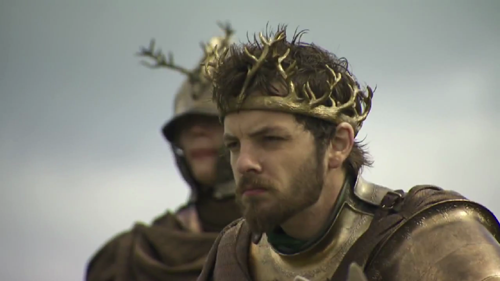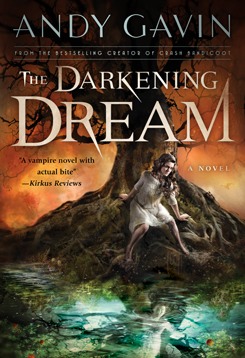As we ramp into GOT season 2, HBO releases yet more and more goodies. Here we have one of those overwhelmingly positive video previews – but with lots of good footage. Enjoy.
- Writing
- Books
- Games
- Movies
- Television
- Food
- Food Review Index
- Foodie Club
- Hedonists
- LA Sushi Index
- Chinese Food Index
- LA Peking Duck Guide
- Eating Italy
- Eating France
- Eating Spain
- Eating Türkiye
- Eating Dutch
- Eating Croatia
- Eating Vietnam
- Eating Australia
- Eating Israel
- Ultimate Pizza
- ThanksGavin
- Margarita Mix
- Foodie Photography
- Burgundy Vintage Chart
- Other
- Gallery
- Bio
- About
- Contact
Archive for drama
The Sopranos – Season 1
 Title: The Sopranos- season 1
Title: The Sopranos- season 1
Genre: Comedy / Drama
Stars: James Gandolfini (Actor), Lorraine Bracco (Actor), Alan Taylor (Director), Allen Coulter (Director)
Watched: First season: April 20-28, 2011
Status: Six seasons, series finished
Summary: The HBO missing link
For whatever reason The Sopranos remained the only real HBO drama that I hadn’t seen. I’ve been a huge HBO original programming fan as far back as Dream On, but I just never got around to Tony and crew.
Until now.
It’s interesting to see it after the fact, after having watched Rome, Deadwood, Six Feet Under, Carnivale, True Blood, The Wire, Big Love, Game of Thrones, Boardwalk Empire, etc. This is an intermediate stage in the development of today’s long form visual medium. The Sopranos, like all HBO dramas, is very well written. Where it shines is in character building. Not development per se, but in the creation of unique and interesting personalities. The casting is spot on and nearly every member shines as distinctive and amusing individuals. But inherently, this is a recipe HBO has really mastered, blending casting, writing, and acting to make seamless characters.
It isn’t (in this first season) as well plotted as some of its sucessor shows. Less happens, and the events are a bit less dramatic. This isn’t to say that nothing’s going on, but we don’t have the momentous and shocking events every fifteen minutes that are the hallmark of the mid 2000s shows. I suspect later seasons may grow into this. The net net of this was that I wasn’t quite as riveted by the events, and certain subplots dragged, but the characters certainly kept me watching.
There is something to note here, which is the odd dichotomy of the like-ability of most of the cast and their “trade” as cold and murderous mobsters. The show strikes a slightly comic and not entirely realistic tone with regard to this, making it easier to disregard the violence and keep on liking them. And like them I certainly did, particularly Tony. James Gandolfini shines in this role, nailing his particular brand of goomba charisma. His mother is perfect too (although fun to hate) as the manipulative bitch that she is.
I was also a bit ambivalent about the central premise of the mafia boss in psychotherapy. Although I did like the shrink, and I liked the amusing way in which Tony would sometimes describe a happening in mild mannered terms while the visuals showed it “the way it really was.” I often enjoy this this sort of humor. At times the overall conceit felt a little forced, but it basically works.
So I’ll start in on season 2, particularly as I’ve heard the series only gets better.
For my review of season 2, see here.
Check out my review of Game of Thrones.
Related posts:
TV Review: Downton Abbey
 Title: Downton Abbey
Title: Downton Abbey
Genre: Historical (England 1912-1914)
Watched: March 14-19, 2011
Status: First Season (second coming fall 2011)
Summary: Great Television!
My parents, as lifelong anglophiles and Masterpiece Theatre viewers, recommended this British TV series set in 1912-1914. It wasn’t a hard sell once I read the blurb, and I’m so glad we watched it. This is really fine television.
Downton Abbey is a fictional great English country estate, owned by the middle aged Earl of Grantham. He has a loving wife and three daughters, not to mention about 30 assorted housekeepers, maids, footmen, and the like. What he doesn’t have is an heir, as his cousin, the closest male relative went down with the Titanic. The major family drama here is the conflict between the complex English system of inheritance (and this earl’s specific case) and the circumstances. The playground is an anything but simple household that contains no less than 20 major cast members.
No show or movie I’ve ever seen before so intimately details complex organization of great estate like this. I’m always fascinated by the evolution of everyday living (for rich and poor alike) and anyone who thinks the rich keep on getting richer ought to see this. And then remember that a 100 years earlier a house like this would have had five times the servants. Also dominant are the politics and different roles of the various staff and family members. 1914 is the end of an era, as the double whammy of World War I/II will shatter the aging remains of Europe’s cast system like a crystal vase dropped off the Empire State Building (HERE for some of my thoughts on that). In any case, this series is to a large extent about this particular moment, so indicative of the long history of social change. We have employee rights, women’s franchise, choice in marriage and family, even the availability of healthcare and the installation of the telephone.
But that’s not what makes it good, merely interesting. What makes it good is the phenomenal writing and acting. Maggie Smith (younger viewers will know her better as Professor Minerva McGonagall) is a standout as the reigning Earl’s crotchety old mother, but the entire cast is great. For this many characters, they are each highly distinct and multidimensional. Some you love, some you love to hate, but they all make it entertaining. Downton Abbey is not a series about sudden murders or gratuitous brothel scenes like the great HBO dramas (and I love those too!), but instead a series of intertwined character studies that reveal their era as well as timeless facets of human nature.
So unless you thought Transformers 2 was high entertainment, go watch!
Related posts:
 Title: Summer Sisters
Title: Summer Sisters
Author: Judy Blume
Genre: Chick Lit
Read: Oct 21-22 2010
Summary: Loved It, but had issues with the second half.
Continuing on the Judy Blume theme. This is a the first adult novel I’ve read by Blume. It’s longer than her YA fare, but it still shows the same skill at painting fascinating characters. Summer Sisters is the tale of a girl, Vix, who joins her “wild friend,” Caitlen, for a whole summer on Martha’s vineyard (in 1977) and ends up with this surrogate family every year after. It follows them from 12 to about 30. The POV is present tense, but flips around between everyone in the story except for Caitlen (she’d probably be unwritable). About 2/3 the word count is from Vix’s point of view. The first half is frankly awesome. The people are so weird, yet so real. The late 70’s early 80’s Martha’s Vineyard setting is so true to life (been there). The sex is hot, and there’s plenty of it. The pre-sexual experimentation is really well told too. However, in the second half the story picks up the speed at which it moves through time and we blow past the college and post-college years. Caitlen runs off to Europe and essentially disappears from the picture, although not the mind of the protagonist. I’m not sure I loved where it all went and wrapped up. But it doesn’t really matter because the island scenes with the two girls are unforgettable and worth the price of admission. I’m still in envy of Blume’s character and dialog skills.
Subscribe by email:
More posts on:
Categories
- Contests (7)
- Fiction (404)
- Books (113)
- Movies (77)
- Television (123)
- Writing (115)
- Darkening Dream (62)
- Untimed (37)
- Food (1,862)
- Games (103)
- History (13)
- Technology (21)
- Uncategorized (16)
Favorite Posts
Archives
- January 2026 (3)
- December 2025 (9)
- November 2025 (13)
- October 2025 (12)
- September 2025 (14)
- August 2025 (15)
- July 2025 (16)
- June 2025 (14)
- May 2025 (7)
- April 2025 (4)
- February 2025 (5)
- January 2025 (3)
- December 2024 (13)
- November 2024 (14)
- October 2024 (14)
- September 2024 (15)
- August 2024 (13)
- July 2024 (15)
- June 2024 (14)
- May 2024 (15)
- April 2024 (13)
- March 2024 (9)
- February 2024 (7)
- January 2024 (9)
- December 2023 (8)
- November 2023 (14)
- October 2023 (13)
- September 2023 (9)
- August 2023 (15)
- July 2023 (13)
- June 2023 (14)
- May 2023 (15)
- April 2023 (14)
- March 2023 (12)
- February 2023 (11)
- January 2023 (14)
- December 2022 (11)
- November 2022 (13)
- October 2022 (14)
- September 2022 (14)
- August 2022 (12)
- July 2022 (9)
- June 2022 (6)
- May 2022 (8)
- April 2022 (5)
- March 2022 (4)
- February 2022 (2)
- January 2022 (8)
- December 2021 (6)
- November 2021 (6)
- October 2021 (8)
- September 2021 (4)
- August 2021 (5)
- July 2021 (2)
- June 2021 (3)
- January 2021 (1)
- December 2020 (1)
- September 2020 (1)
- August 2020 (1)
- April 2020 (11)
- March 2020 (15)
- February 2020 (13)
- January 2020 (14)
- December 2019 (13)
- November 2019 (12)
- October 2019 (14)
- September 2019 (14)
- August 2019 (13)
- July 2019 (13)
- June 2019 (14)
- May 2019 (13)
- April 2019 (10)
- March 2019 (10)
- February 2019 (11)
- January 2019 (13)
- December 2018 (14)
- November 2018 (11)
- October 2018 (15)
- September 2018 (15)
- August 2018 (15)
- July 2018 (11)
- June 2018 (14)
- May 2018 (13)
- April 2018 (13)
- March 2018 (17)
- February 2018 (12)
- January 2018 (15)
- December 2017 (15)
- November 2017 (13)
- October 2017 (16)
- September 2017 (16)
- August 2017 (16)
- July 2017 (11)
- June 2017 (13)
- May 2017 (6)
- March 2017 (3)
- February 2017 (4)
- January 2017 (7)
- December 2016 (14)
- November 2016 (11)
- October 2016 (11)
- September 2016 (12)
- August 2016 (15)
- July 2016 (13)
- June 2016 (13)
- May 2016 (13)
- April 2016 (12)
- March 2016 (13)
- February 2016 (12)
- January 2016 (13)
- December 2015 (14)
- November 2015 (14)
- October 2015 (13)
- September 2015 (13)
- August 2015 (18)
- July 2015 (16)
- June 2015 (13)
- May 2015 (13)
- April 2015 (14)
- March 2015 (15)
- February 2015 (13)
- January 2015 (13)
- December 2014 (14)
- November 2014 (13)
- October 2014 (13)
- September 2014 (12)
- August 2014 (15)
- July 2014 (13)
- June 2014 (13)
- May 2014 (14)
- April 2014 (14)
- March 2014 (10)
- February 2014 (11)
- January 2014 (13)
- December 2013 (14)
- November 2013 (13)
- October 2013 (14)
- September 2013 (12)
- August 2013 (14)
- July 2013 (10)
- June 2013 (14)
- May 2013 (14)
- April 2013 (14)
- March 2013 (15)
- February 2013 (14)
- January 2013 (13)
- December 2012 (14)
- November 2012 (16)
- October 2012 (13)
- September 2012 (14)
- August 2012 (16)
- July 2012 (12)
- June 2012 (16)
- May 2012 (21)
- April 2012 (18)
- March 2012 (20)
- February 2012 (23)
- January 2012 (31)
- December 2011 (35)
- November 2011 (33)
- October 2011 (32)
- September 2011 (29)
- August 2011 (35)
- July 2011 (33)
- June 2011 (25)
- May 2011 (31)
- April 2011 (30)
- March 2011 (34)
- February 2011 (31)
- January 2011 (33)
- December 2010 (33)
- November 2010 (39)
- October 2010 (26)
Copyright © 2026 All Rights Reserved




